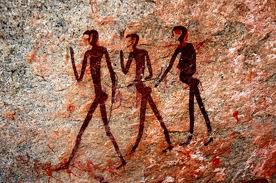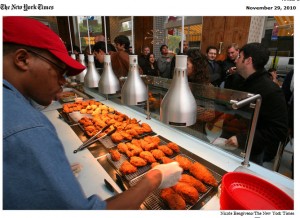Journalism anew.
Yesterday at the Long Island 140 Conference I had lunch with Jason Molinet. Those from Long Island know Mr. Molinet from his insightful bylined stories in Newsday over the years. He now works for Patch.
I like AOL’s content strategy and often urge the company to invest in big name online properties a la Huff Post and TechCrunch. As for Patch, I haven’t been as warmly disposed. My first impression was that Patch (AOL’s local news play) was going to be a flop. A big time supporter of the need for more localized news and the internet’s ability to deliver it, in my experience so far Patch has been lacking. Fact checking, reporting ballast, edge still seem lacking. I wonder if Patch reporters are tired and on second careers. Jaded me?
Well perhaps I’m wrong. Tim Armstrong (AOL CEO) is heavily invested in Patch and he wants it to work, so maybe Mr. Molinet is a step in the right direction.
Earlier in the week I sat in on a talk at the Social Media Club of Long Island with a New York Times stringer reporter who lives locally. She’s a heavy social media user and when combining her investigative reporting skills with fast twitch social media she has been doing some amazing things. Her sources are a fingertip away. Story backgrounders clicks away. Quotes immediate. This woman gets the new journalism. And it is very, very exciting.
Once newspapers break the tether of the paper/paper and traditional reporters will combine their instincts and skills with social and web tools, it will truly reinvent the business. It’s the promise of Patch. Let’s see if they deliver. Peace!






